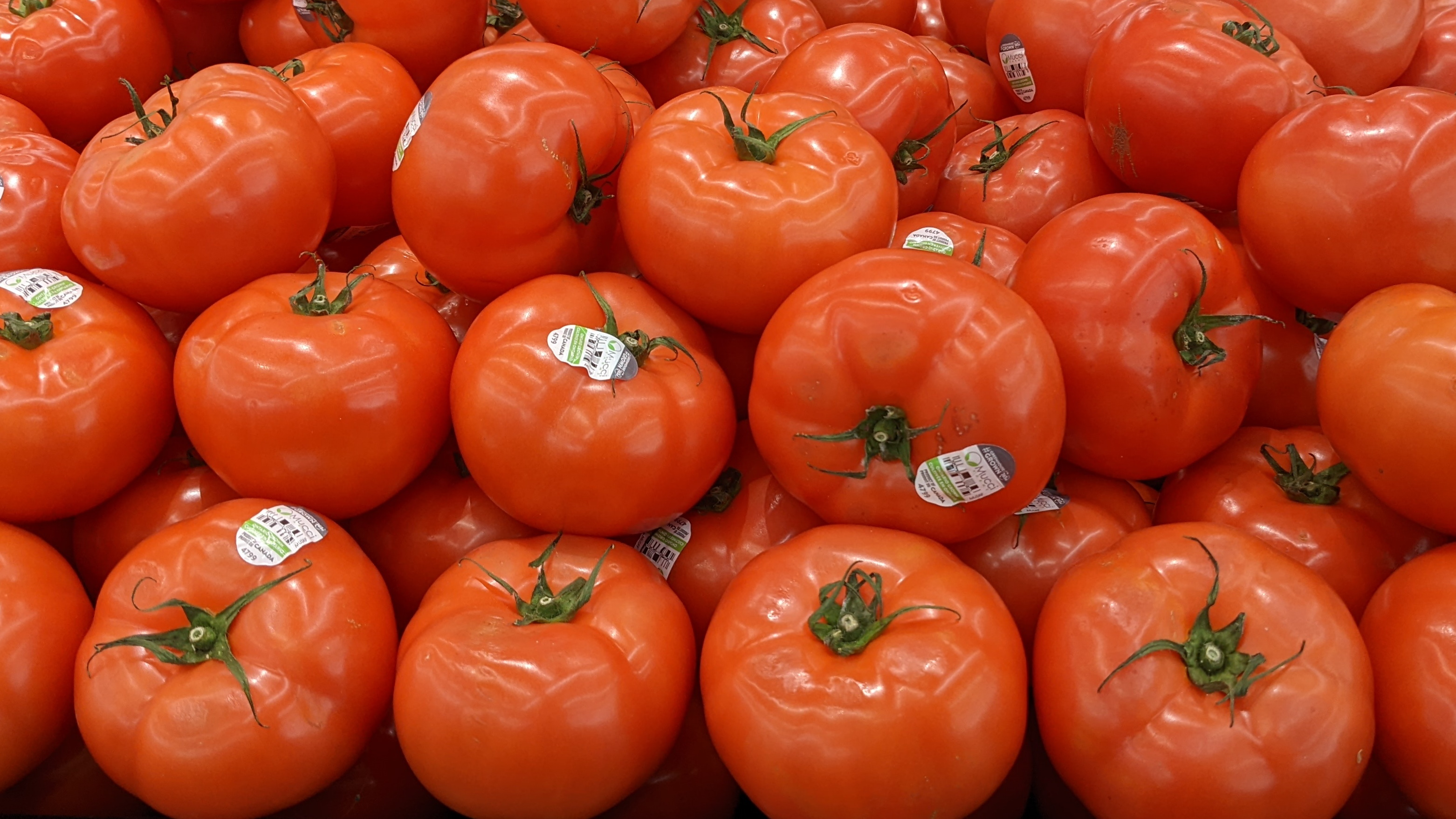
Intelligence is knowing a tomato is a fruit.
Wisdom is knowing not to put it in a fruit salad.Miles Kington in The Independent (March 28, 2003)
Tomatoes are the quintessential “fruit or vegetable” item. They seem to have spawned the idea that botany must dictate culinary terms. I am not sure where this debate started or why tomatoes have been singled out (perhaps because they are red and juicy), but as a result, they are the most asked-about plant by a large margin. It seems everyone is confused about whether a tomato is a fruit or a vegetable.
It is often said that a tomato is technically a fruit and that people calling it a vegetable are repeating uneducated beliefs. However, these people themselves tend to just be parroting what they have heard. Botanically, a tomato is the fruit of the plant, however this does not make it wrong to call it a vegetable.
If you had not heard of this debate and were eating tomatoes for the first time, you would intuitively think that it is a vegetable. It’s not very sweet; it’s more savory. It doesn’t grow on a tree. It grows on a short, annual plant. They’re often cooked into a sauce or alongside other savory foods, and never bitten into eaten raw like an apple would be. You put it in a regular salad with other vegetables, not a fruit salad. Doesn’t that make it a vegetable? Yes, it does. In fact, studies show that 70–78% percent of people recognize tomatoes as vegetables. As the purpose of language is to communicate, “vegetable” is clearly the preferred word to convey the attributes of a tomato.
This doesn’t conflict with its botanical definition. A tomato is both a fruit and a vegetable, at least in some sense of the words. It just depends on the context. Technically, it’s a berry even.
However, it is a berry only by virtue of the obscure botanical definition of “berry,” meaning it came from an ovary, is fleshy, and doesn’t split open to spread its seeds. This has no relevance for 99% of people. The botanical definition does not have any influence in the world of food. Unless you are a scientist studying plants, the botanical definitions of “fruit” and berry” are useless for you. You are eating tomatoes, not growing them. A tomato is a vegetable.
If you call tomatoes fruits just because they are the seed-bearing part of the tomato plant, there are many other vegetables you would have to miscategorize under such logic. It is illogical to single out only tomatoes to insist on using botanical definitions. Cucumbers, olives, pumpkins, corn, and many more vegetables all comprise the fruit of plants. But to call such things fruits would make the word “fruit” lose a large part of its meaning. Fruit has a culinary meaning too, like “vegetable” is a culinary term. Mixing botanical and culinary terms does not make sense. It just confuses people, which is the opposite of what language is supposed to do.